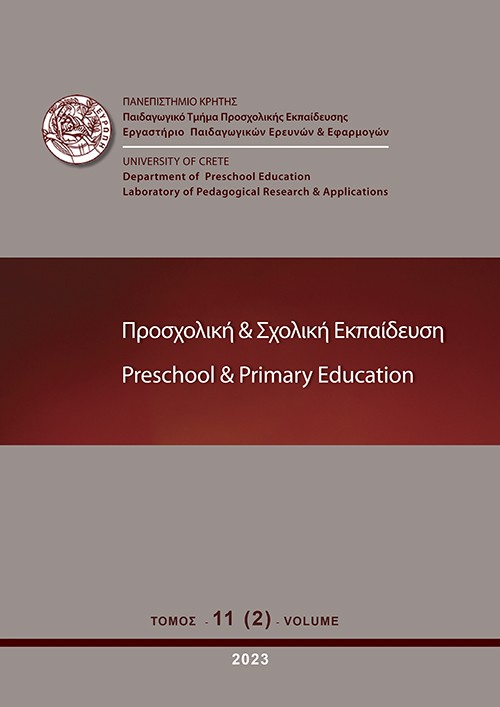The pedagogy of empathy in the "Online School" of the Attica Regional Directorate of Education during the Covid-19 pandemic

Abstract
The lockdown of schools’ during the 2020-2021 academic year as a result of the expansion of the COVID-19 pandemic necessitated the establishment of an online school that could cover the complex needs of vulnerable students. This paper examines the establishment of an online environment of safety, care and warmth, in which vulnerable teachers taught by stressing the pedagogy of empathy, and a holistic approach to the development of cognitive and emotional skills of vulnerable students. Qualitative research was carried out to assess the degree of empathy vulnerable teachers showed vulnerable students. Fifty open-ended interviews were conducted with teachers and 15 with students, and the qualitative content analysis method was used for the results. The purpose of the research is to examine the effect of the pedagogy of empathy on students’ learning achievements and to investigate the dimensions that empowered students and teachers. The findings indicate that the pedagogy of empathy was implemented to a certain extent and had a motivating effect on the academic performance of vulnerable students. Four pedagogical components of empathy emerged: cognitive, affective, communicative and socio-cultural. Finally, distance education, synchronous and asynchronous, offered hope for a high-quality inclusive education by giving weight to the experience of the pedagogical relationship in the new "normality" after the pandemic.
Article Details
- How to Cite
-
Kosyvas, G. (2023). The pedagogy of empathy in the "Online School" of the Attica Regional Directorate of Education during the Covid-19 pandemic. Preschool and Primary Education, 11(2), 207–237. https://doi.org/10.12681/ppej.31995
- Section
- Articles

This work is licensed under a Creative Commons Attribution-NonCommercial-ShareAlike 4.0 International License.
Authors who publish with this journal agree to the following terms:
- Authors retain copyright and grant the journal right of first publication with the work simultaneously licensed under a Creative Commons Attribution Non-Commercial License that allows others to share the work with an acknowledgement of the work's authorship and initial publication in this journal.
- Authors are able to enter into separate, additional contractual arrangements for the non-exclusive distribution of the journal's published version of the work (e.g. post it to an institutional repository or publish it in a book), with an acknowledgement of its initial publication in this journal.
- Authors are permitted and encouraged to post their work online (preferably in institutional repositories or on their website) prior to and during the submission process, as it can lead to productive exchanges, as well as earlier and greater citation of published work (See The Effect of Open Access).


